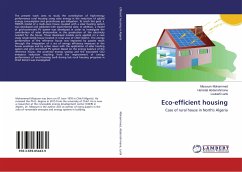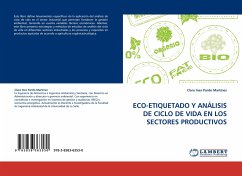The present work aims to study the contribution of high-energy performance rural housing using solar energy in the reduction of global energy consumption and greenhouse gas mitigation. To reach this goal, a TRNSYS model of a multi-zone house coupled with a solar heating system was developed and validated with experimental data. In addition, a model of grid-connected PV system was developed in order to investigate the contribution of solar photovoltaic in the production of the electricity needed for the house. These developed models were applied on a case study single-family house located in rural area of Chlef district. The energy performance of the reference house was improved by passive mean through the integration of a set of energy efficiency measures in the house envelope and by active mean with the application of solar heating system and grid connected PV system. Based on the energy balance of the reference house, the potential energy savings and the associated CO2 emissions reduction resulting from the improvement of energy performance of rural housing built during last rural housing programs in Chlef district was investigated.
Bitte wählen Sie Ihr Anliegen aus.
Rechnungen
Retourenschein anfordern
Bestellstatus
Storno








